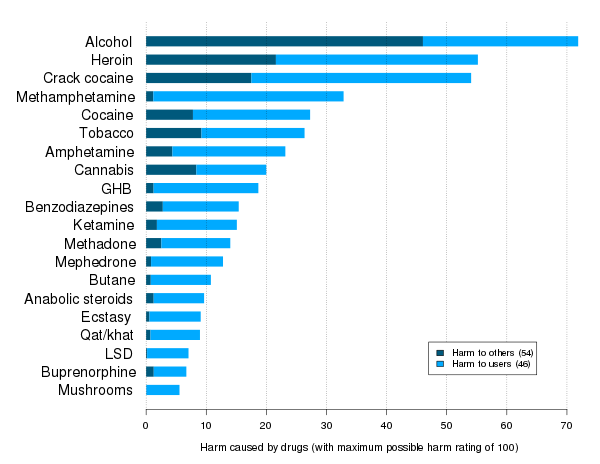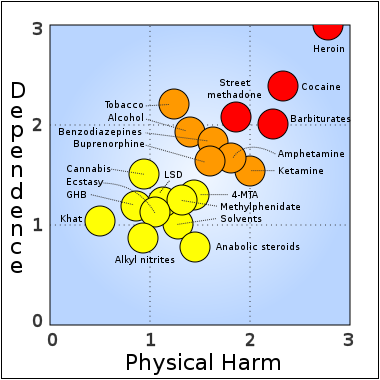Written by: Goh Meng Seng
I hope that this will be my last article on this little storm in the teacup because it is getting very sickening and stale.
More information has been revealed by both sides as well as supporters from both sides since my last article. The latest "politicking" information revealed is the "grassroot" identity of the Chairman of the Hawkers Association. The above photo is put up by netter.
It is not surprising that we will find out who is PAP member or supporter or grassroot members etc. Similarly, it is not difficult for us to find out who belongs to opposition supporters or members, even when they use anonymous nicks in internet. So most WP people (members, BSBS Brigade, supporters etc) would immediately put on their full gear and attack, putting up conspiracy theories and such. However, Mr. Ng is not the only one who signed the petition against WP AHPeTC. Almost all hawkers signed that petition.
Besides, do we make noise when someone who criticises PAP government is found to be WP member or supporter? If not, why are people so happy to find out that Mr Ng from hawker association is someone with PBM? If we take criticisms from PAP members or supporters as invalid or with agenda that we should ignore totally, then it would mean that any criticisms on PAP by opposition member or supporters should also put on the same rule as well.
The truth is, we should take each criticism and incident as it is, analyze it with its merits and not politicize it. That is why Justice can only be found with eyes blind folded on the individuals' background and looks... just look at the facts.
Both PAP and WP MPs are voted into parliament to SERVE ALL constituents in their wards, not just their supporters. They should also be serving their opponent's supporters as well, without prejudice.
The more interesting information revealed is on why the NEA officer mistaken the scaffolding mentioned by WP AHPeTC. According to NEA website on structures needed to be put up for the market cleaning is a metal scaffolding for putting on the canvas to cover the stalls. This is something similar to those tentage we saw on the street market (Pasar Malam).
![]()
Yes, it is called "Scaffolding" in the NEA document here. Thus, we have to piece these information together.
If there is a basic understanding that it is the responsibility of the Town Council to pay for all the cleaning including the ceiling, the NEA officer assumed that the scaffolding the TC staff talked about in his email refers to the hawkers' tentage structure. Thus, it is natural for the NEA officer to reply that the hawkers will take care of their own scaffolding with their contractors.
The strange part is this, what seems to be an misunderstanding on scaffolding ended up with a quotation of the WHOLE HIGH RISE CLEANING by the WP's contractor to the hawkers. The followingdocument is provided by NEA.
![]()
How this come about, is still a mystery. But I suspect that what the hawkers have asked for is the pricing for the scaffolding for the canvas cover for their stalls but in the end, ATL has given them the whole cost of High Rise Cleaning.
No matter what, it is totally dishonest for WP's contractor ATL to put up quotation of HIGH RISE CLEANING to the hawkers when they know pretty well that it is their contractual obligations to provide such cleaning. (This is what WP AHPeTC has claimed.)
Sylvia Lim is totally wrong to disclaim any responsibility over the unprofessional and unethical conduct of AHPeTC's contractor. Especially so when it failed to get the hawkers to pay for High Rise Cleaning, which is effectively double charging for this service when it has already been paid by AHPeTC under contract, it refused to do the cleaning. That is a technical breach of contractual obligations which WP AHPeTC cannot just ignore and brush away.
To draw a parallel, if you have engaged a contractor to provide service to your clients with every services paid for by you, would you tolerate your contractor attempting to charge your clients again by providing additional quotation to them? Obviously the only right thing to do is to take your contractor to task because it is basically destroying your business credibility and relationship!
WP AHPeTC has repeated claimed that it has not asked hawkers to pay extra for services but the fact that it has closed both eyes for its contractor to attempt to charge for services already paid for is totally acceptable. At another incident, hawkers at another hawker centre has also made direct accusation to their WP MP that AHPeTC's employee, the property manager Mr Tai, has told them that the contractor will not clean anything above 2.5m. Thus, this is not just an isolated incident and it is unlikely that two or three hawker centres would conspired and make up lies to accuse WP AHPeTC of such acts.
![]()
![]()
Since WP MPs and AHPeTC were informed of this fact, it would only be helpful if WP clarifies whether it has carried out any investigations on this matter after these complaints have been made. It is obviously contradictory for WP to claim that its AHPeTC has not asked hawkers to pay for high rise cleaning (this happens to be "consistence" with its contractor's quotation to hawkers) while its property managers were accused of going around to tell hawkers another story altogether.
Consistency in statements on events are important for us to understand who is probably telling the truth and who is not. Unfortunately, NEA's public communication skills is just too bad to give a clearer picture right from the start, even though they might have more complete information at hand. It tries to side step accusation of its staff's reply to AHPeTC instead of explaining it fully with illustrations. It gives people an impression that you have some sinister conspiracy to hide although this may not be the case.
Similarly, WP's AHPeTC has even worst public communication skills. It has completely confused the public whether it is going to pay for all cleaning, including the high rise cleaning TWICE a year. It has been inconsistent in its reasoning and even contradicts itself within the same press statement. Worst of all, it has taken a total irresponsible stance that whatever its contractor does, even if it attempt to double charge the hawkers, it has nothing to do with it. That is the worst kind of stance a political party should take. Where is the Accountability when we need one?
PAP and WP have raised this issue to political bickering with Minister Vivian Balakrishnan coming in to defend his ministry's NEA division after Sylvia Lim accused NEA of "playing politics".
In my opinion, NEA isn't even competent in putting up effective press statements to put a strong punch, I don't think NEA is capable of "playing politics" in any sense. All evidence point to the dishonest attempt of WP's contractor trying to extract extra charges on hawkers and WP's irresponsible disassociation from such act. Although NEA has all the necessary evidence, it failed to provide a coherent picture and illustration on what went wrong.
The Minister is right to state that the hawkers have been giving a consistent account of what happened but it was NEA which failed to put these accounts in clear and simple terms with proper illustrations. Documentation proofs should have been put up right from the start instead of trying to play it like a lawyer which they failed very miserably.
I too believe that the hawkers are telling the truth that they were told to pay extra for high rise cleaning. It is NOT just the scaffolding, but the whole high rise cleaning. The quotation from WP's contractor is one, the subsequent confirmation of other hawker centre's statement that AHPeTC has been going around to tell them contractor will not clean anything above 2.5m is another glaring evidence.
Ironically, WP cannot just try to play politics in the bid to try to defend its own image while ignoring all these happenings. It is obvious that something is very wrong with its own backyard and it should apologize for the failure of delivery of service to the hawkers and the attempt of its contractor to extract extra/double charges from them. Of course, it will have to clean the ceilings as soon as possible, in the interests of public hygiene.
To sum up, let me put up two comments or remarks by two different people on the internet.
Remark 1:
我是一名退休人员。我一直关注自己的生意。多年来几乎每个周末,我都会去看望在勿落的姐姐。位 于BLK 511的小贩中心是我们日常的市场。上周,我和姐姐去市场,亲眼看到小贩中心的天花板很脏乱。实在不太体面 。如果这样的问题不得已解决,将会成为公众卫生问题。我用自己的手机拍了照片,虽然不是很清晰,我想也能准 确表达我的意图和我所关心的问题。Sylvia Lim 和WP议员Pritam Singh负责市议会。他们的工作就是确保各个地方的清洁。因此当地小贩才会支付他们费用。承包商已认同合 同内容却是如此。因此,市议会没有强迫他们根据合同履行义务。并非拥护当地中心小贩,反而为何这两位议员却 尽量保护和掩饰承包商,承包商不仅没有完成合同中付款的工作,还试图从较为贫穷的小贩那里抽取额外的费用。 我对这些小商贩的了解已有些时日。他们不想招惹麻烦。他们只想谋生。如果他们解释的太多,他们会很害怕。市 议会令他们的生活雪上加霜。事实上,小贩们很团结,他们发出了寻求帮助的请愿,只是为了表达这一切有些太过 分了,以至于他们无法再容忍下去。正如我所说的,如大多数人一样,我通常只介意我自己的生意,但是这实在是 太过分了。如小贩们一样,我也无法接受Sylvia Lim和 Pritam Singh所给的任何推辞和指责。他们应停止玩弄政治,做好他们份内之事。
Remark 2:
This is exactly the reason why the PAP is never really afraid of WP. PAP's biggest enemy is themselves. The reason why PAP is losing support is because it is increasingly successful in pissing off the citizens rather than the opposition is getting better in quality. People are voting for the opposition to tell PAP to wake up their idea and not that our opposition is quality. I shudder to think of the day i hear LTK or Sylvia Lim giving a National Day Rally speech.
I am not a political science student and so i do not follow politics very closely. But from the stuff that i have read so far, it seems to me the only thing our opposition is good at is getting involved in petty quarrels and trying to discredit PAP at every possible opportunity.
My point is do we have to make others look bad in order for us to look good? If you have to make others look bad in order for you to look good, then i guess you don't have much substance either.
If AHPETC had handled the issue in a less than satisfactory way, then apologize, right the wrong and move on. It will reflect well on their maturity and give them a valuable edge over PAP which often than not does not apologize for mistakes.
So if the best our opposition party can do is focus on 5 cents 10 cents issues, then i have doubts over their ability to handle politics in the international arena.
Goh Meng Seng
*Article first appeared on http://singaporealternatives.blogspot.com.au/2013/06/beyond-smokescreen-ii.html













 (Number of new citizens per year – from Straits Times)
(Number of new citizens per year – from Straits Times)















